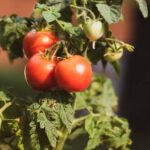Have you ever wondered, can you use CCA treated pine for vegetable gardens? CCA (Chromated Copper Arsenate) treated pine has long been a popular choice for outdoor construction projects due to its resistance to rot and insect damage.
In this article, we will explore the controversy surrounding CCA treated pine and the potential risks of using it in vegetable gardens. We will also discuss safe alternatives for constructing vegetable garden beds, how to properly dispose of CCA treated pine, and offer tips for choosing the right materials for your garden.
CCA treated pine is a type of wood that has been pressure-treated with a preservative containing chromium, copper, and arsenic. This process extends the lifespan of the wood by protecting it from decay and insect infestation. As a result, CCA treated pine has been commonly used for outdoor structures such as decks, fences, and raised garden beds.
However, the use of CCA treated pine in vegetable gardens has sparked controversy due to concerns about the leaching of toxic chemicals into the soil. The arsenic in particular has raised health concerns, especially when growing edible plants in close proximity to the wood. As a result, many gardeners are seeking safer alternatives for constructing their vegetable garden beds.
Understanding the CCA Preservation Process
The CCA preservation process is a method used to treat pine and other types of wood to protect them against decay, fungi, and insects. CCA stands for chromated copper arsenate, which is a combination of three chemicals – chromium, copper, and arsenic. These chemicals are infused into the wood under high pressure to create a barrier that prevents deterioration.
How CCA Preservation Works
During the CCA preservation process, the wood is placed in a sealed chamber where it is subjected to high pressure. The chamber is then filled with the CCA solution, which penetrates deep into the wood fibers. Once the pressure treatment is complete, the wood is left to dry and cure before it can be used for construction purposes.
The Benefits of CCA Treated Pine
One of the main advantages of using CCA treated pine is its resistance to decay and insect damage. This makes it an ideal choice for outdoor construction projects such as decks, fences, and garden beds. Additionally, CCA treated pine has a long lifespan, which means it requires less maintenance compared to untreated wood.
Despite these benefits, there has been growing concern about the safety of using CCA treated pine in certain applications such as vegetable gardens. The next section will delve deeper into the controversy surrounding CCA treated pine and its potential risks when used in vegetable gardens.
The Controversy Surrounding CCA Treated Pine
CCA (chromated copper arsenate) treated pine has been a popular choice for outdoor construction projects, including garden beds, due to its ability to resist decay and insect damage. However, controversy surrounding the safety of using CCA treated pine for vegetable gardens has raised concerns among gardeners and environmentalists.
The use of CCA treated pine in vegetable gardens has sparked debate due to the potential risks associated with exposure to the chemicals used in the preservation process. The concern is primarily focused on the leaching of arsenic, chromium, and copper from the wood into the soil, which can then be absorbed by vegetables and other plants.
This has led to questions about whether it is safe to grow edible crops in soil that may be contaminated with these harmful substances.
Despite assurances from manufacturers that CCA treated pine is safe when used as directed, many experts recommend erring on the side of caution when it comes to using this type of wood for vegetable garden beds. Gardeners are encouraged to consider alternative materials that do not pose potential risks to human health or the environment.
Here are some alternatives to using CCA treated pine for constructing vegetable garden beds:
- Cedar: Naturally resistant to decay and insect damage
- Redwood: Durable and resistant to rot
- Composite lumber: Made from a mix of recycled plastic and wood fibers
- Untreated pine or fir: Economical options for those looking for natural wood materials
Potential Risks of Using CCA Treated Pine in Vegetable Gardens
Leaching of Chemicals
One of the potential risks of using CCA treated pine in vegetable gardens is the leaching of chemicals into the soil. CCA treated pine contains copper, chromium, and arsenic, which are toxic to humans and can be absorbed by plants. Over time, these chemicals can leach into the soil, especially in moist conditions, and be taken up by the vegetables growing in the garden beds.
Health Concerns
Another risk is the potential health concerns associated with exposure to CCA-treated wood. Direct contact with CCA-treated pine can lead to skin irritation, and inhaling sawdust from this type of wood can cause respiratory issues. Ingesting food grown in soil contaminated with CCA chemicals can also pose health risks.
Environmental Impact
In addition to health concerns, using CCA treated pine in vegetable gardens can have negative environmental impacts. As the chemicals leach into the soil, they can contaminate nearby water sources and harm wildlife. It is important to consider not only the immediate impact on your own health but also the broader environmental implications of using CCA-treated wood in vegetable garden beds.
Given these potential risks, it is advisable to explore safe alternatives for constructing vegetable garden beds that do not pose these same dangers to human health and the environment.
Safe Alternatives for Constructing Vegetable Garden Beds
Many gardeners are concerned about the potential risks of using CCA treated pine in their vegetable gardens. This preservation process involves treating wood with chromated copper arsenate to protect it from decay and insect damage, but there are worries about the leaching of harmful chemicals into the soil and potentially into the plants themselves. So, what are some safe alternatives for constructing vegetable garden beds?
One popular option is using naturally rot-resistant woods such as cedar or redwood. These types of wood contain natural oils that make them durable without the need for chemical treatments. Additionally, composite lumber made from a combination of wood fibers and recycled plastic is another great alternative. This material is low-maintenance and long-lasting, making it an environmentally friendly choice for constructing raised garden beds.
For those looking for a more budget-friendly option, consider using untreated pine or fir for your vegetable garden beds. Although these woods may not last as long as cedar or redwood, they can still provide several years of use before needing to be replaced. And if you’re feeling particularly crafty, you could also explore options such as corrugated metal or recycled plastic lumber for constructing your garden beds.
It’s important to carefully consider the materials you use for your vegetable garden beds to ensure that they promote a healthy and safe growing environment for your plants. By choosing safe alternatives to CCA treated pine, you can have peace of mind knowing that your homegrown produce is free from any potential chemical contamination.
| Safe Material | Advantages |
|---|---|
| Cedar or Redwood | Naturally rot-resistant; no need for chemical treatments |
| Composite Lumber | Low-maintenance; made from recycled materials |
| Untreated Pine or Fir | Budget-friendly; provides several years of use |
How to Properly Dispose of CCA Treated Pine
The proper disposal of CCA treated pine is crucial to prevent any potential harm to the environment and human health. Due to the toxic nature of CCA, it is important to handle its disposal with care and in compliance with local regulations.
One of the safest ways to dispose of CCA treated pine is by taking it to a hazardous waste collection facility in your area. These facilities are equipped to handle and dispose of materials containing hazardous chemicals such as CCA.
Another option for disposal is to contact a professional waste removal service that specializes in handling hazardous materials. They have the expertise and resources to safely transport and dispose of CCA treated pine without posing a risk to the environment or human health.
It’s essential to never burn CCA treated pine as this can release harmful chemicals into the air, soil, and water. Additionally, never use CCA treated pine for composting or as mulch, as this can result in contamination of the soil and potentially harm plants.
| Disposal Method | Description |
|---|---|
| Hazardous Waste Collection Facility | Take CCA treated pine to a designated facility for safe disposal |
| Professional Waste Removal Service | Hire experts to handle the safe transportation and disposal of CCA treated pine |
Tips for Choosing the Right Materials for Vegetable Garden Beds
When it comes to choosing the right materials for your vegetable garden beds, it’s important to prioritize the safety of your produce and your family. While CCA treated pine may be a common choice for building garden beds due to its durability, there are potential risks associated with using this type of wood in vegetable gardens.
To ensure the safety of your vegetables and loved ones, it’s crucial to consider safe alternatives for constructing garden beds. Some suitable options include:
- Cedar: Known for its natural resistance to decay and insects, cedar is a popular choice for vegetable garden beds.
- Redwood: With its natural beauty and resistance to decay, redwood is another great option for constructing garden beds.
- Composite lumber: Made from a blend of recycled plastic and wood fiber, composite lumber is durable and resistant to rot, providing a low-maintenance option for garden beds.
Additionally, when choosing materials for your vegetable garden beds, consider using untreated pine if you prefer the look and affordability of this type of wood. However, keep in mind that untreated pine may not have the same longevity as treated or naturally resistant woods.
Before making a decision on which materials to use for your vegetable garden beds, it’s important to research and weigh the pros and cons of each option. By prioritizing safety and sustainability, you can make an informed choice that will benefit the health of your plants and those who consume them.
Conclusion and Final Thoughts on CCA Treated Pine in Vegetable Gardens
In conclusion, while CCA treated pine has been widely used in the past for constructing garden beds, the potential risks and controversies surrounding its use raise valid concerns. The preservation process of CCA treated pine involves chemicals that can leach into the soil and may pose a risk to human health, especially when growing edible plants in vegetable gardens.
As a result, many experts advise against using CCA treated pine in vegetable gardens to prevent potential contamination of produce with harmful chemicals.
Fortunately, there are safe alternatives available for constructing vegetable garden beds, such as untreated cedar, redwood, or composite materials. These alternative materials provide durability and stability for garden beds without the added risk of chemical exposure. When choosing materials for vegetable garden beds, it is important to prioritize safety and sustainability to ensure the health of both your plants and yourself.
Overall, while it may be tempting to use CCA treated pine due to its affordability and availability, it is important to consider the long-term impact on the environment and potential health risks. By making informed decisions about the materials used in vegetable gardens, we can create a safe and sustainable environment for growing healthy produce without compromising our well-being or that of the ecosystem.
Frequently Asked Questions
Is Treated Pine Safe for Vegetable Gardens?
Treated pine can be safe for vegetable gardens, but it depends on the type of treatment used. If the pine is treated with ACQ (alkaline copper quaternary) or copper azole, it is considered safe for vegetable gardens.
Is CCA Treated Pine Safe?
CCA treated pine, which stands for chromated copper arsenate, is not considered safe for vegetable gardens. This type of treatment contains arsenic, a toxic substance that can leach into the soil and potentially harm plants and people.
Is Copper Treated Wood Safe for Vegetable Gardens?
Copper treated wood is generally considered safe for vegetable gardens. The copper in this type of treatment acts as a fungicide and helps to protect the wood from decay and rot without posing significant risks to plants or humans.
However, it’s still important to use caution and follow best practices for using any type of treated wood in a garden setting.

If you’re looking to get into vegetable gardening, or are just looking for some tips on how to make your current garden better, then you’ve come to the right place! My name is Ethel and I have been gardening for years. In this blog, I’m going to share with you some of my best tips on how to create a successful vegetable garden.





